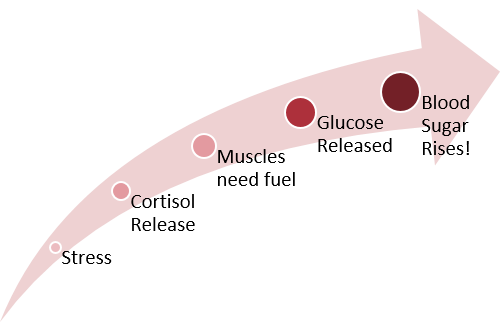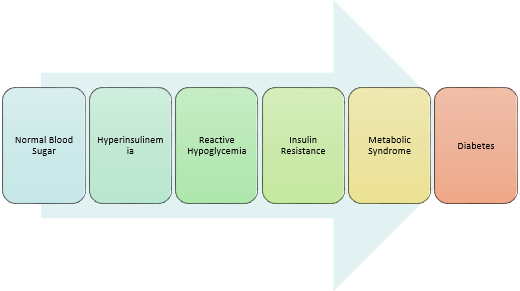Many of us made – and already broke! – New Year’s Resolutions. Why do we struggle to keep resolutions about eating healthy, reducing our calorie intake, eating fewer sweets, drinking less soda? The reason may lie less with our resolve and more with a lack of understanding. We may have a sugar addiction. Consider this:
- The typical American consumes the equivalent of 22 sugar cubes every…24 hours!
- Excess sugar increases appetite
- Our gut may contribute to a sugar addiction
- Sugar not only promotes diabetes, but also heart and liver disease and cancer
- Scientists now compare sugar addictions with heroin and cocaine addictions
A Quick History of Sugar
There was a time when sugar was not plentiful. Going back, way back, to the original homo sapiens who lived in the regions now known as Ethiopia and Tanzania, scientists have looked at the types of food that would have been readily available. Those foods were fish, shellfish, land animals, and tubers. Tubers at that time were not like the potatoes we have today. They were more fibrous and far less starchy.
Notice fruit and vegetables are not mentioned on this menu. But according to Michel Montignac, in “The History of Man’s Eating Habits,” early civilizations did have access to a limited number of wild vegetables and fruits, all of which would have been on the low glycemic index.
Some additional history:
- Cereals were widely grown by ancient Egyptian farmers and became a staple in the diets of all the people by the time of the Roman Empire.
- Sugar was known around the world by the end of the Medieval period, but was very expensive and considered a fine spice.
- Technological improvements and New World sources such as increased sugar beet farming turned sugar into a much cheaper bulk commodity.
- In 1957 high fructose corn syrup was developed and by 1985 was used in many foods from baby food to Coca Cola. Is it a coincidence that obesity also began to rise in the 1980’s?
While I would not suggest that sugar is the single culprit in the obesity epidemic, it is certainly a factor. We’ve come a long way from early Man barely eating any sugar! The World Health Organization suggests that our diet should contain no more than 6 teaspoons of sugar per day, while our current average intake of sugar is at least three times that much at around 22 teaspoons per day.
Sugar and The Gut – The Dysfunctional Couple
The human gastrointestinal tract or “gut” is responsible for digestion. Digestion involves breaking food down into its most basic parts. It can then be absorbed through the wall of the gut into the bloodstream and transported around the body.
The gut contains both good and bad bacteria and yeast, but when the gut is healthy the good bacteria and yeast thrive while the “bad” organisms are kept in check. Sugar unbalance the gut by feeding unhealthy yeast called candida. While candida is always present in the gut, an overgrowth of candida disrupts the delicate balance of gut. Candida overgrowth can take over the appetite and cause nutritional deficiencies to develop.
Both candida overgrowth and nutritional deficiencies can fuel a voracious appetite – particularly one that demands sugar. In other words, eat more sugar, want more sugar, eat even more sugar, and the vicious cycle of a sugar addiction is born. But that’s just the beginning of this dysfunctional relationship.
While the gut is primarily responsible for digestion it also constitutes about 70% of the body’s immune system. Research shows that the consumption of too much sugar throws the body’s immune response system out of balance.
In a 1973 neutrophilic phagocytosis study out of Loma Linda University, researchers found (in laymen’s terms) that sugar depresses the body’s immune system (or the body’s ability to fight off illness) for several hours. Picture the person at the office binging on birthday cake while being exposed to the nasty stomach virus which is making the rounds. Sick leave is likely in that person’s future!
Links Between Sugar and Disease
We all know that diabetes, heart disease, and cancer are huge public health concerns. The family that has not been visited by one of these devastating diseases is actually quite uncommon. Is sugar the underlying cause in all of these diseases? No, not directly, but indirectly – YES!
Let’s consider how we consume sugar, aside from sugary soda drinks. In most cases those with a sugar addiction do not sit and eat sugar cubes to get their fix. Instead, they eat food containing sugar, feeding their voracious appetite. These foods may include simples cabs such as sweet cereals, processed breakfast and snack bars, cookies, ice cream, brownies, candy bars….the list goes on and on.
Each of these foods has another commonality besides sugar. They are loaded with fat. The obvious result is weight gain (many of us experienced that over the holidays, right?) but the less obvious result is the slow shift our bodies make from insulin sensitivity to insulin resistance. This shift ultimately leads to Type 2 Diabetes.
 This chart explains the process in simplistic terms. When we take in food, digestion turns it into glucose which cells use for energy. The pancreas secretes a hormone called insulin which helps sugar move out of the blood and into the body’s cells.
This chart explains the process in simplistic terms. When we take in food, digestion turns it into glucose which cells use for energy. The pancreas secretes a hormone called insulin which helps sugar move out of the blood and into the body’s cells.
In the cells, the body can use sugar to make energy. According to Dr. Kelly Traver, “All cells have insulin receptors. But for some reason, the fat cells remain sensitive to insulin, even when the muscle cells become more resistant. So, the sugar is preferentially let into the fat cells rather than the muscle cells. Once inside the fat cells, the sugar is not used for creating ATP; instead, it is just used to store fat. This is handy if starvation is right around the corner (as it often was for our prehistoric ancestors), but for most people today, this is an issue. The real zinger here is that fat cells secrete a chemical that encourages the muscles’ insulin receptors to become less sensitive. This means that the pancreas has to churn out more insulin (which the fat cells grab), the fat cells become even fatter and secrete more of their chemicals, and the vicious cycle continues.” As this cycle continues, and vital cells fail to receive much needed energy from glucose, the body becomes at risk for cardio vascular disease, liver disease and cancer as well, just to mention a few.
The Science of the Addiction
Animal studies tell us that sugar is more rewarding and addictive than cocaine.
Yes, more. It appears that this is because we are hardwired to seek out sugar. After all, our cells have evolved to rely on sugar as their number one fuel source.
But eat too much sugar for too long, and you’ll find that
your brain rewires itself to look something like the brain of a heroin or cocaine addict.
This is because drug and food cues use the same circuitry within the brain. Brain chemicals that are similar to the chemicals in heroin and marijuana (known as opioids and cannabinoids) make you “like” the taste of sweet.
A surge of dopamine makes you “want” the taste of sweet. Scientists have backed up this research with brain PET scans of both obese people who ingest a large amount of sugar and cocaine addicts. The brain scans are eerily similar.
Chris Kresser, M.S., L.Ac, writes in LET’S TAKE BACK YOUR HEALTH — Starting Now. “A recent body of evidence suggests that gut microbes might play a significant role in influencing cravings. Given that microbes co-evolved with us and constantly depend on the incoming dietary substrates that we provide for their own sustenance, it’s really no surprise that they are able to preferentially shape our eating preferences to improve their own chances of survival. In other words, our gut potentially has great control over our eating habits, whether they be healthy habits or unhealthy habits.”
So What’s the Solution?
If you believe you may have a sugar problem, don’t panic! You’re not alone. There are simple steps you can take to free yourself from the addiction.
First, PLEASE don’t attempt to go cold turkey! You’ll only make yourself miserable. Instead, gradually back off the sweets and replace them with healthier options.
It’s always easier to add than to take away so before eliminating sugary foods I recommend adding healthy, low-sugar foods to your diet. Nutrient dense foods like green vegetables give your body the raw materials it needs in order to function well. They also begin to retrain your taste buds to accept low sugar foods.
Green smoothies as a meal replacement or snack are a convenient way to get more veggies in your diet. There are many recipes online, just be sure to avoid recipes that are dairy based (using milk or yogurt) or include high sugar fruits like bananas. Choose green smoothie recipes that use either water or a nut or seed milk as their base, have lots of leafy greens, and use low sugar fruits such as berries for a bit of sweetness (TIP: ¼ – ½ an avocado adds a nice creaminess similar to yogurt but without the inflammatory response).
My favorite green smoothie recipe includes:
- 8-10 oz hemp milk (or just water)
- 2 handfuls (or more!) of arugula (also called rocket)
- 2 handfuls of blueberries (fresh or frozen)
- a few fresh mint leaves (or a pinch of dried)
- Cardemom and cinnamon to taste
(BONUS! Cinnamon helps with blood sugar control!) - You can use a few drops of liquid stevia if you like a little more sweetness
- Add a quality protein powder and you have a complete meal!
I have found that sour foods help eliminate sweet cravings. Try a Bubbies brand dill pickle (BONUS! The natural probiotics in this brand help your gut) or a tablespoon of raw apple cider vinegar in a little water. Taking 200mcg of chromium polynicotinate with meals helps reset insulin receptors and minimize cravings.
Ready to Kick the Sugar Habit?
I can help! Click here to get started on your healing journey.
Lenoir, M., Serre, F., Cantin, L., & Ahmed, S. H. (2007). Intense sweetness surpasses cocaine reward. PloS one, 2(8), e698.
Ahmed, S. H., Avena, N. M., Berridge, K. C., Gearhardt, A. N., & Guillem, K. (2013). Food addiction. In Neuroscience in the 21st Century (pp. 2833-2857). Springer New York.
DiLeone, R. J., Taylor, J. R., & Picciotto, M. R. (2012). The drive to eat: comparisons and distinctions between mechanisms of food reward and drug addiction. Nature neuroscience, 15(10), 1330-1335.
Tang, D. W., Fellows, L. K., Small, D. M., & Dagher, A. (2012). Food and drug cues activate similar brain regions: a meta-analysis of functional MRI studies. Physiology & behavior, 106(3), 317-324.










